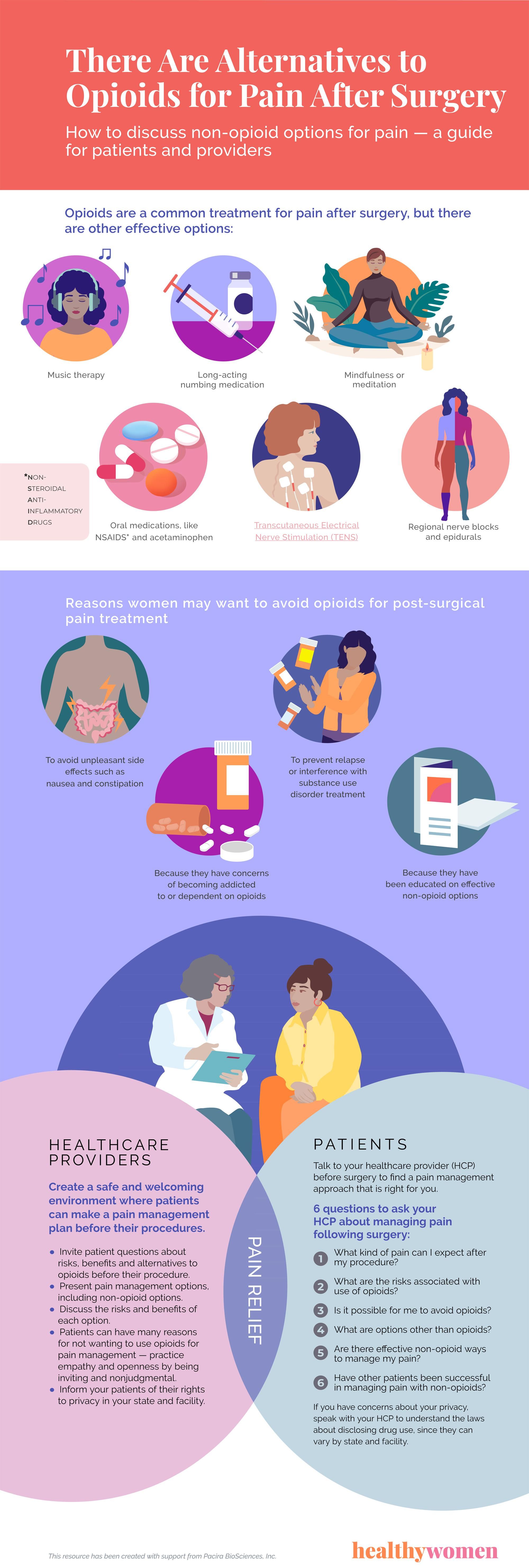Opioids are a common treatment for pain after surgery, but there are other effective options:
Long-acting numbing medication
Oral medications, like non-steroidal anti-inflammatory drugs (NSAIDS) and acetaminophen
Regional nerve blocks and epidurals
Mindfulness or meditation
Music therapy
Transcutaneous electrical nerve stimulation (TENS)
Reasons women may want to avoid opioids for post-surgical pain treatment
To avoid unpleasant side effects such as nausea and constipation
To prevent relapse or interfere with substance use disorder treatment
Because they have been educated on effective non-opioid options
Because they have concerns of becoming addicted to or dependent on opioids
Patients
Talk to your healthcare provider (HCP) before surgery to find a pain management approach that is right for you.
Questions to ask your HCP about managing pain following surgery:
- What kind of pain can I expect after my procedure?
- What are the risks associated with use of opioids?
- Is it possible for me to avoid opioids?
- What are options other than opioids?
- Are there effective non-opioid ways to manage my pain?
- Have other patients been successful in managing pain with non-opioids?
If you have concerns about your privacy, speak with your HCP to understand the laws about disclosing drug use, since they can vary by state and facility.
Healthcare Providers
Create a safe and welcoming environment where patients can make a pain management plan before their procedures.
- Invite patient questions about risks, benefits and alternatives to opioids before their procedure.
- Present pain management options, including non-opioid options.
- Discuss the risks and benefits of each option.
- Patients can have many reasons for not wanting to use opioids for pain management — practice empathy and openness by being inviting and nonjudgmental.
- Inform your patients of their rights to privacy in your state and facility.
This resource has been created with support from Pacira BioSciences, Inc.
- Why You Need to Advocate for Yourself and Create a Pain Management Treatment Plan Before Surgery ›
- Using Opioids to Manage My Cancer Pain - HealthyWomen ›
- Women Want a Post-Surgery Pain Management Choice - HealthyWomen ›
- Alternatives to Opioids for Pain Management - HealthyWomen ›
- Opoioids Alternative for Postsurgical Pain - HealthyWomen ›
- Breast Surgery and Opioids: What You Need to Know - HealthyWomen ›








